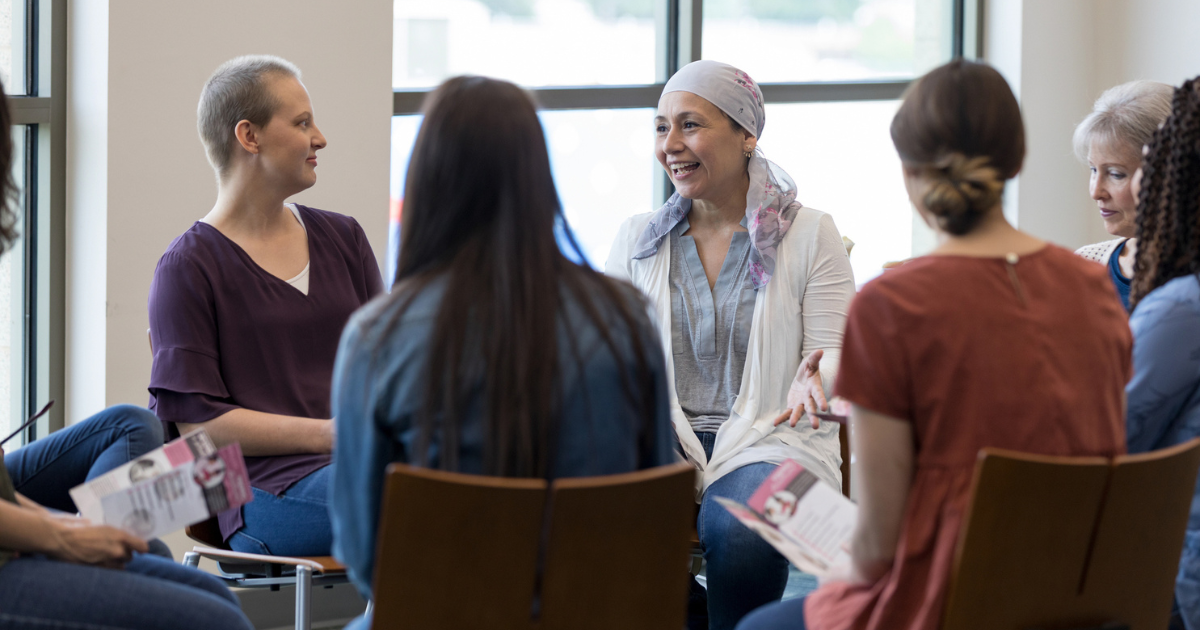5 things they don't tell you about life after cancer

When you’re first diagnosed with cancer, your oncology team will let you know what to expect throughout your treatment. However, many cancer survivors are surprised by the issues they encounter after completing treatment.
Survivorship clinics, like the one offered through Nebraska Medicine, support cancer patients for as long as needed following diagnosis. In this article, we’ll explore what cancer survivors are surprised to learn about life after cancer treatment.
1) Fatigue can last years after treatment.
The most common physical challenge patients experience after cancer treatment is fatigue. “About 90% of cancer patients experience fatigue after diagnosis,” says Nebraska Medicine nurse practitioner Rachael Schmidt, ARNP. “Many don't realize fatigue can last for years after treatment ends. Around 30% of cancer survivors have fatigue lasting more than two years.”
Many factors causing fatigue are treatable, including hypothyroidism, depression and low testosterone. Exercise is one of the best ways to fight fatigue. Even starting small with less sitting and more standing can help.
2) Your sleep habits may change.
Many things can cause cancer survivors to have trouble with sleep. One of the most common is anxiety. Others may have insomnia disorder or obstructive sleep apnea, a sleep disorder where breathing repeatedly stops and starts. The Survivorship Clinic can help identify the cause and refer patients to a specialist for treatment. If sleep disorders are left untreated, they can lead to a host of negative health outcomes including cognitive dysfunction, mood disorders, heart disease and more.
3) Anxiety and depression are common.
Almost every cancer survivor will have some level of anxiety when going through treatment. Even years after treatment’s completed, the fear of recurrence is common.
“We see patients who are worried many years after completing cancer treatment,” says Schmidt. “If a symptom reminds them of their initial diagnosis, it can increase their anxiety. We teach patients how to manage anxiety in those situations.”
According to Schmidt, approximately 75% of cancer survivors also experience some level of depression. The Survivorship Clinic provides patients with skills to help manage depression. They can also refer patients to Psychology or Psychiatry for further treatment.
4) You may struggle with body changes.
Many cancer survivors struggle with body image long after treatment. This can be especially true if they’ve had a breast removed, have a large scar, or have lost hair due to chemotherapy.
“We ask patients about the body image issues they’re grappling with,” says Schmidt. “We recognize that their body may go through weight fluctuations because of the cancer treatment. Patients may experience changes with their hair, skin or nails. They may have an ostomy. Or, they may resent their body because they were diagnosed with cancer. We are here to acknowledge these changes and talk through the options that we offer. We can also refer patients to Psychology or Psychiatry for further treatment.”
5) Treatment may cause late and long-term effects.
Often, cancer survivors aren’t aware of the potential late and long-term effects of cancer treatments. These can include issues with the heart, bones, fertility, sexual function and peripheral neuropathy.
“Heart disease occurs nearly twice as often in cancer survivors than in the general population,” says Schmidt. “For that reason, we encourage patients to be mindful of cardiovascular issues.”
The Survivorship Clinic also screens patients for issues with sexual function. Cancer survivors often do not discuss these problems with their primary oncologist because they feel uncomfortable. But issues with sexual function are common in both women and men.
Infertility is another long-term effect of cancer treatment. “Survivors diagnosed with infertility struggle with that as much as their initial cancer diagnosis,” says Schmidt. “That’s why we discuss fertility preservation with younger patients as soon as they are diagnosed.”
Another late effect of cancer treatment is peripheral neuropathy. This is numbness and tingling in the hands and feet due to chemotherapy. “This common condition occurs in about one-third of cancer patients and can improve over time. We also have medications that can help with this symptom,” says Schmidt. “We also screen and educate patients on signs of early lymphedema. This is swelling caused by the build-up of lymph fluid. If we catch lymphedema early, it’s much easier to manage.”
Survivorship programs offer support even after treatment ends
Survivorship begins at diagnosis. It is the process of living with, through and beyond cancer. After completing cancer treatment, your oncology team may refer you to a cancer survivorship program. You can also self-refer whenever you're ready.
The Nebraska Medicine Survivorship Clinic helps patients deal with cancer’s emotional and physical challenges. It also helps them transition back into the care of their primary care physician.
“Patients can be seen in the Survivorship Clinic even if they completed treatment 10 years ago,” says Schmidt. “The number of visits depends on the individual. Some come in once for screening recommendations and take the information back to their primary care physician. Others may request follow-ups every year or more, depending on their needs.”
The Nebraska Medicine program began in 2016 and continues to expand its offerings. “We now have a long-term clinic that provides annual follow-ups for bone marrow transplant patients,” says Schmidt. “We also have a clinic for adults diagnosed with cancer as children who need long-term follow-up.”
Know a cancer survivor in need of support?
The Nebraska Medicine Survivorship Clinic has three locations including the Fred & Pamela Buffett Cancer Center, Cancer Center at Village Pointe Health Center and Cancer Center at Bellevue Medical Center. Telehealth appointments are also available for patients who prefer to be seen in the comfort of their homes.







